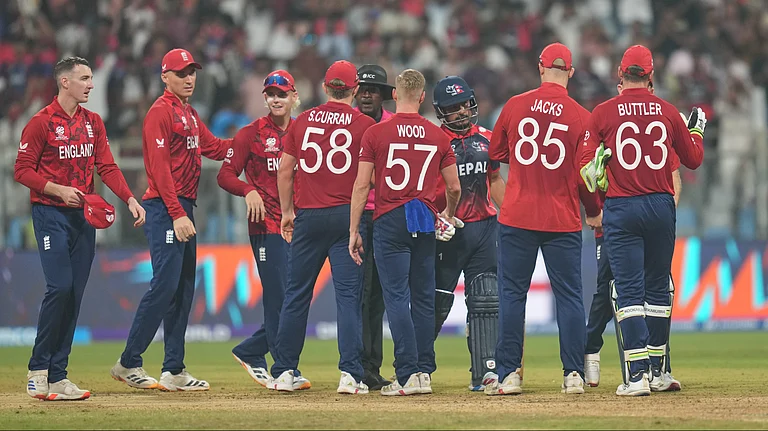"There was a body lying exposed on the stretcher on Platform no. 4," the kite manufacturer-cum-real estate agent now recollects. "After a while, the authorities, for want of a shroud, pulled down a cloth banner promoting some product, and covered the body with it. The incident shook me and I decided back then that I would do something about this."
Though the spectre of the train-hit bloodied corpse haunted him often, it took Nathvani a decade to set his service into motion. He says: "Very frankly I didn't know how to go about it. Were there permissions to be taken? From whom?"
Meanwhile, Nathvani's contribution towards the cause of accident victims began manifesting itself. First in 1990, with an ambulance and stretcher service which could be accessed by the suburban Kandivli police station to ferry victims to Cooper, a government hospital several suburbs away. "We devised a system whereby a fixed amount—around Rs 1,000—was kept at the police station. When an ambulance was used, it would be deducted, entered into a register and the shortfall repaid as and when required," says the 43-year-old. Gradually people in the locality started lining up—sourcing medical assistance in some cases and in others, with Nathvani footing the bill, for pyre wood or cremation expenses. "You'd be amazed at the number of people who can't afford to give their near ones a decent farewell," says Nathvani.
Finally, early this year, Nathvani's long-time desire saw fruition—stemming from his fervently-held belief: The dead deserve some dignity. "From a few railway sources I learnt that the white sheets put over a dead victim came either from the first class linen of the railways or from the railway hospital. But tradition demands that the dead be covered with kora kapda—cloth that has never been used before." Every week, therefore, a person is sent across to the six Western suburb stations—Andheri, Jogeshwari, Goregaon, Malad, Kandivli and Borivli—to replenish stocks. "At any point of time, we keep five shrouds at these stations. A minimum of a 100 shrouds are required every month," he observes.
Nathvani keeps no track of the money spent on his work. "Keeping accounts would amount to counting one's good deeds. That's wrong," he says. What he keenly follows, however, are those stations where he has yet to create a shroud-supply scheme. "Just a few days ago, one of the papers carried a picture of a body at Dadar station covered with newspaper sheets."
Agreeing that the number of train accident deaths far surpasses those of shrouds available, Kandivli station superintendent Muthuswamy says of Nathvani: "It is a commendable job. Although the government does supply shrouds, sometimes they are in short supply." According to the station superintendent, there is a minimum of one accident every day—almost every one ending in death. "The survival of a train accident victim is very rare," he says. "In fact, there are times when there are three accidents in one day—and one is talking only about one railway station. So you can imagine how many shrouds are needed."
Nathvani is now working on a scheme to increase the number of stretchers at every station "so that the victims can be carried immediately to a medical centre". "But," he adds, "I honestly wish that for every two stations, the railways appointed one doctor on an honorary basis because I feel most of the victims succumb for lack of immediate treatment."
Meanwhile, the sheets are rolling in. Other Samaritans who don't have the time, but have the inclination, drop by to donate starched material. At Rs 11 per metre, Nathvani notes, "the 2 x 3 ft material is a small price to pay for the dignity of the dead". If you want to help, call (022) 8639035.
























